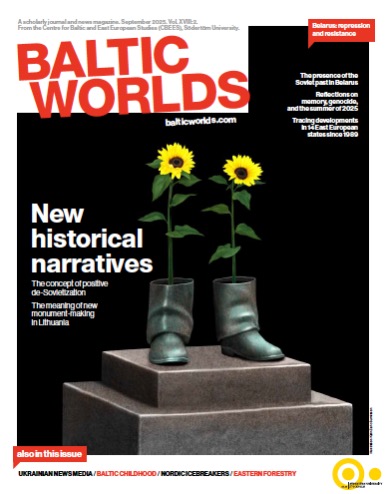The 2014 Parliamentary Elections in Latvia. Keep Calm and Carry On
On 4 October 2014, Latvia held the parliamentary elections that brought a hope of stability as the ruling coalition government won a comfortable majority. It is likely that the coalition negotiations, also this time, will lead to formation of the so-called minimal wining coalition. However, the parliamentary situation is complicated due to the arrival of two smaller parties on the Latvian political scene.

 Issue 2025, 2:
Issue 2025, 2: